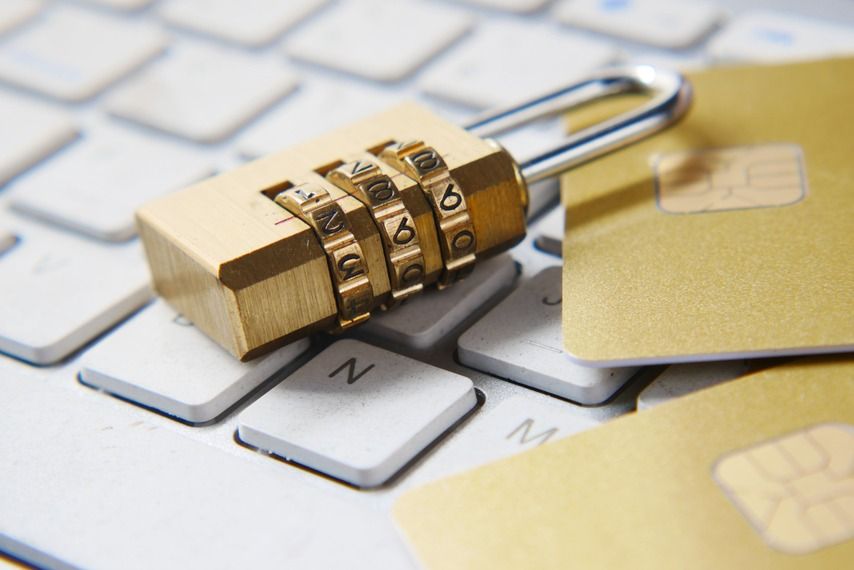
Essential data protection terms for companies

'%3e%3cpath%20d='M26.6667%2020.022L30%2023.3553V26.6886H21.6667V36.6886L20%2038.3553L18.3333%2036.6886V26.6886H10V23.3553L13.3333%2020.022V8.35531H11.6667V5.02197H28.3333V8.35531H26.6667V20.022Z'%20fill='%230AA971'/%3e%3c/g%3e%3c/svg%3e) Mastering Data Protection
Mastering Data Protection
Tech-dependent businesses must grasp data protection terms: DPO, personal data, privacy policy, ROPA, DPAs, TOMs, breaches, encryption, 2FA, firewall, malware, phishing. Safeguard your data!
As businesses become increasingly reliant on technology, it's essential to familiarize oneself with common data protection terms. These terms help in gaining a better understanding of the risks associated with handling sensitive data and the measures that can be taken to safeguard this data.
Data Protection Officer (DPO)
A Data Protection Officer, or DPO, is an individual responsible for ensuring that a company complies with data protection laws and regulations. The DPO oversees data protection practices, provides guidance on data privacy issues, and serves as a point of contact for data protection authorities. Both internal and external DPOs exist.
Personal Data
The term "personal data" encompasses all information that can be used to identify a natural person. Individuals are identifiable when they can be identified directly or indirectly, especially through an identifier such as a name, an ID number, a location, or other characteristics. This includes information like names, addresses, email addresses, bank details, ID numbers, and more. Such data is under special protection because every person has a right to informational self-determination.
Privacy Policy
A privacy policy is a document that outlines a company's practices and procedures for collecting, storing, and using personal data. This statement should be made accessible to all individuals whose data is collected and should provide information on how the data is used and protected.
Record of Processing Activities (ROPA)
The Record of Processing Activities (ROPA) lists all activities related to the processing of personal data. It is one of the most critical documents under the General Data Protection Regulation (GDPR) as it applies to all companies. Whenever a company processes personal data, it is required to meticulously document these processes in the register.
Data Processing Agreement Register
Data Processing Agreements (DPAs) concern the signing of agreements with service providers or partners who process personal data on behalf of a company. Therefore, businesses must carefully select potential service providers and regularly review their activities. Common examples in corporate practice include payroll processing, sales activities, or the use of marketing and analytics tools. Thus, essential areas of collaboration with other companies are affected by this regulation.
Technical and Organizational Measures (TOMs)
Technical and organizational measures define appropriate processes and describe how to handle data breaches. The goal is to establish a suitable data protection management system. The more severe the risk of breaches (especially with highly sensitive data), the more detailed and comprehensive these processes and descriptions need to be.
Data Breach
A data breach occurs when unauthorized parties gain access to sensitive or confidential information. This can involve personal data, financial data, or company-specific information.
Encryption
Encryption involves converting data into a code that can only be accessed by someone with the corresponding decryption code. Data encryption can help protect data from unauthorized access, particularly during data transmission over the internet or storage on portable devices.
Two-Factor Authentication
Two-factor authentication is an additional security measure where a user must provide a second form of authentication, in addition to their password, to access an account. This could be a code sent via text message or through an authentication app.
Firewall
A firewall is a security system that monitors and controls incoming and outgoing network traffic based on predetermined security rules. Firewalls can be hardware or software-based and are commonly used to prevent unauthorized access to a network.
Malware
Malware refers to any software designed to harm a computer system. This includes viruses, worms, and trojans. Malware can spread through email attachments, downloads, and even by visiting certain websites.
Phishing
Phishing is a type of online scam where attackers send fake emails or create fake websites to trick users into revealing confidential information such as passwords or financial data.


